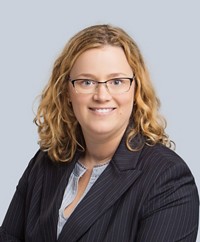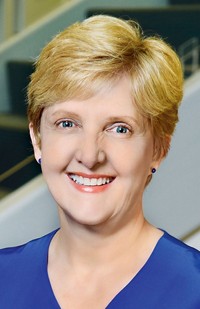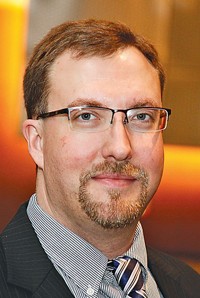Advertisement
Grab your lab coat. Let's get started
Welcome!
Welcome!
Create an account below to get 6 C&EN articles per month, receive newsletters and more - all free.
It seems this is your first time logging in online. Please enter the following information to continue.
As an ACS member you automatically get access to this site. All we need is few more details to create your reading experience.
Not you? Sign in with a different account.
Not you? Sign in with a different account.
ERROR 1
ERROR 1
ERROR 2
ERROR 2
ERROR 2
ERROR 2
ERROR 2
Password and Confirm password must match.
If you have an ACS member number, please enter it here so we can link this account to your membership. (optional)
ERROR 2
ACS values your privacy. By submitting your information, you are gaining access to C&EN and subscribing to our weekly newsletter. We use the information you provide to make your reading experience better, and we will never sell your data to third party members.
Policy
Science And Human Rights: A Call To Action
by Dorothy J. Phillips, Director-At-Large, Acs Board Of Directors, And Liaison For Acs Science & Human Rights Initiatives
October 13, 2014
| A version of this story appeared in
Volume 92, Issue 41
Think of all of the reasons you became a scientist. Although the prospect of an exciting and rewarding career was likely one of the primary motivations, did you also consider how human rights could play a part in your work? Did you know that it already does?
As a member of the American Chemical Society, you are already supporting the society’s work at the intersection of science and human rights. Our efforts—which include writing letters to key government stakeholders and visiting at-risk scientists in their home countries—have long been a model in the scientific community. In fact, the society has been involved in dozens of cases of persecuted chemists, chemical engineers, and related scientists since the early 1980s.
A current case that ACS is closely monitoring is that of professor Kemal Gürüz, a chemical engineer and former president of the Turkish Council of Higher Education. Professor Gürüz was originally jailed in 2012 as part of the Ergenekon conspiracy, which targeted academics, journalists, and other individuals as members in a fabricated coup against the Turkish government.
In addition to sending letters to officials in both the U.S. and Turkey, ACS brought the case to the attention of the U.S. Department of State. This meeting had a meaningful outcome: the inclusion of Gürüz’s case in the Turkey section of the “2013 Country Reports on Human Rights Practices,” published by the Department of State.
As a result of this and other efforts, Gürüz has been released from prison pending the appeal of his case. Bradley Miller, director of the ACS Office of International Activities, connected with Gürüz this August while in Turkey to inquire about his welfare and the status of his case. Gürüz still faces challenges and expressed his gratitude for the efforts of ACS and its members.
ACS is also a founding member of the American Association for the Advancement of Science (AAAS) Science & Human Rights Coalition. The coalition brings together participants from a variety of organizations that recognize the role that scientists and engineers can play in human rights. ACS sends representatives to the biannual meetings of the coalition and contributes to many of its efforts. As an example, ACS helped produce a primer on scientific freedom and human rights to help guide scientific and engineering societies on how to begin addressing human rights issues within their respective disciplines.
ACS will step up its support of science and human rights with a symposium on this topic at the spring 2015 ACS national meeting in Denver. Also in Denver, during the open session of the ACS Board of Directors meeting, the board will honor the 2013 Nobel Peace Prize recipient, the Organisation for the Prohibition of Chemical Weapons, for its work to find peaceful applications of chemical sciences worldwide (C&EN, Aug. 25, page 21).
Although ACS is proud of its long history of assisting chemists and allied scientists in distress, one area that could use improvement is member engagement with human rights issues. To that end, please consider this a call to action.
Are you a chemistry teacher? I invite you to think of ways to incorporate human rights into your lesson plans.
Are you a researcher? Explore the possibility of assisting human rights organizations that need technical expertise by becoming an on-call scientist for AAAS.
Student? ACS has exciting plans to work with human rights organizations such as Amnesty International that would help you to engage.
It’s important to emphasize that there is no need to reinvent the wheel when you become involved in ACS science and human rights initiatives. A number of mechanisms are already in place for ACS members, including participating in our webinar series, following the science and human rights section of Global Chemistry (ACS’s international e-newsletter), and attending related symposia at ACS national meetings. There are also opportunities through signing petitions as well as incorporating the tenets of human rights into your work.
If you need inspiration, or if you already have the passion for science and human rights but need guidance on where to begin, please feel free to reach out to Miller or Lori Brown in the ACS Office of International Activities to see what you can do. Additionally, if you have ideas or initiatives that involve chemistry and human rights, the office might be able to assist you in developing them. You can contact the office at intlacts@acs.org. I also encourage you to visit the ACS webpage dedicated to this topic: www.acs.org/scienceandhumanrights.
When you practice science, your work is tied to the progress of humanity and the general betterment of the quality of life for all. Providing access to science and its benefits, as well as ensuring the freedom for scientists to pursue their work, is where chemistry and human rights meet. Now that you know ACS has a direct connection to human rights work, I encourage you to see how you can get more involved in this area of the society.
Views expressed on this page are those of the author and not necessarily those of ACS.






Join the conversation
Contact the reporter
Submit a Letter to the Editor for publication
Engage with us on Twitter